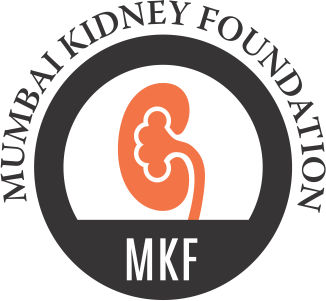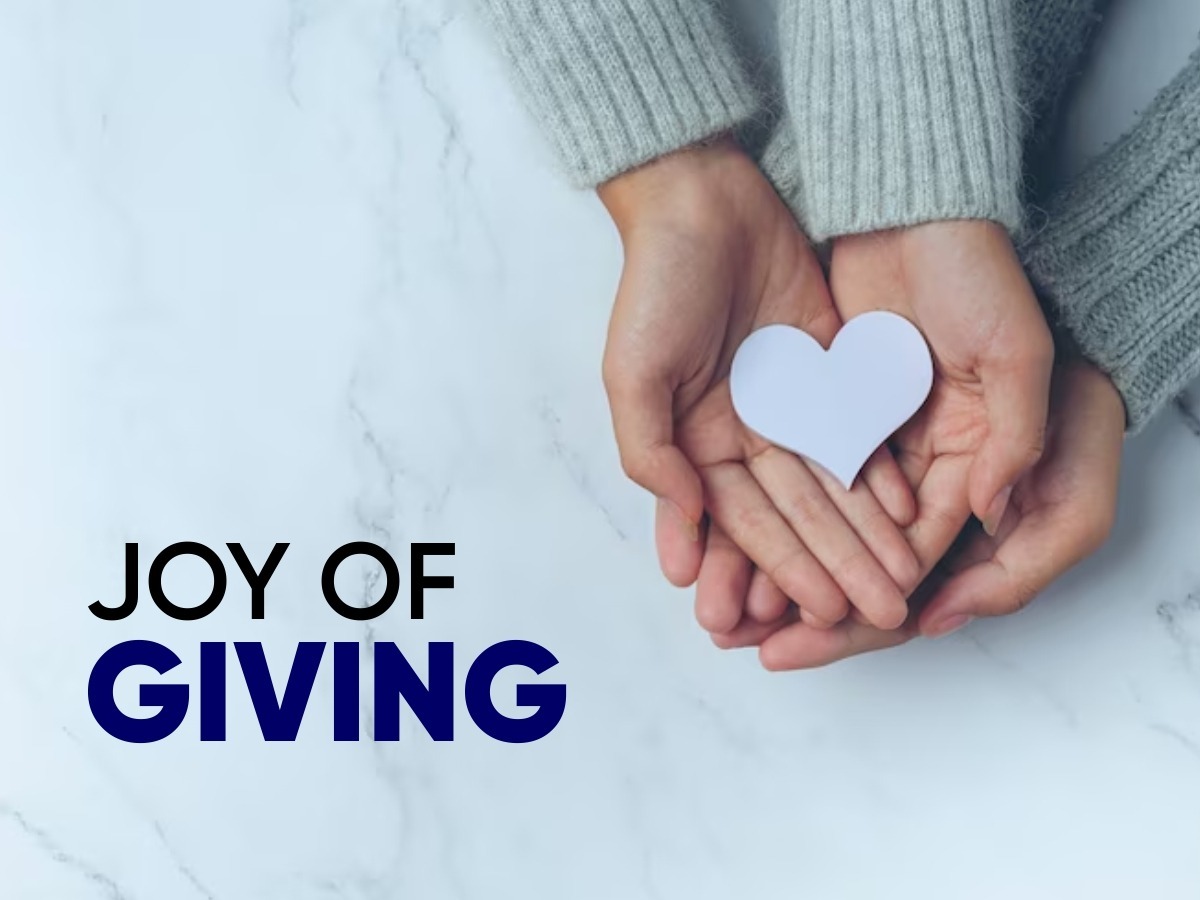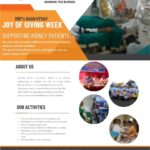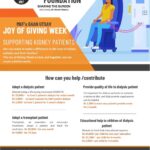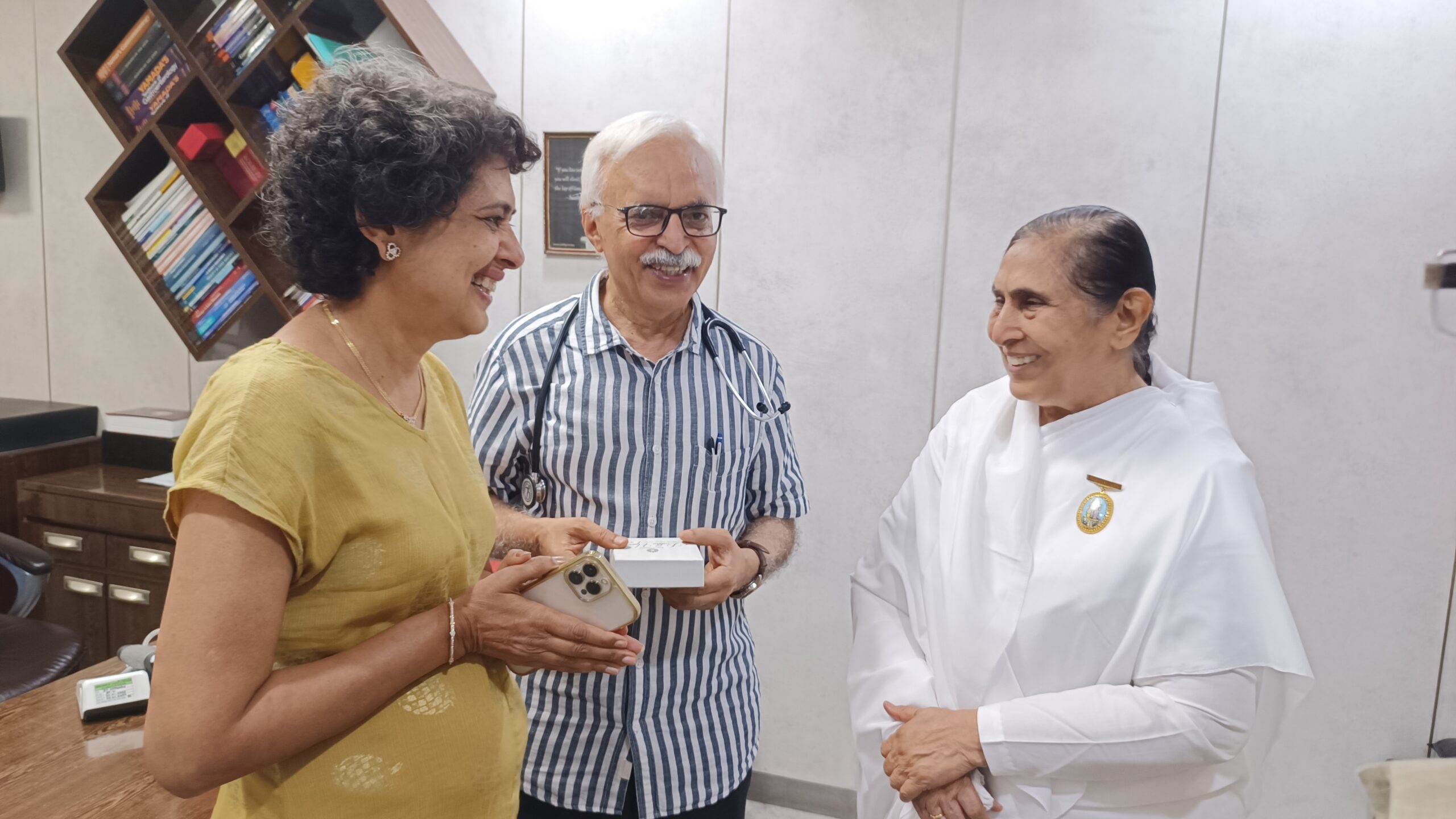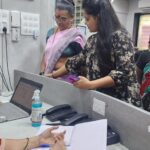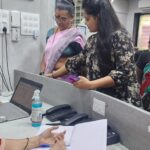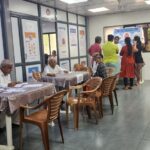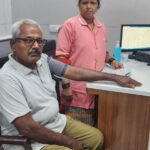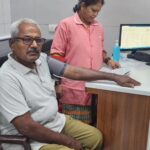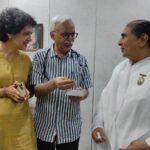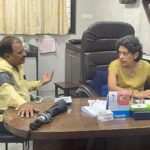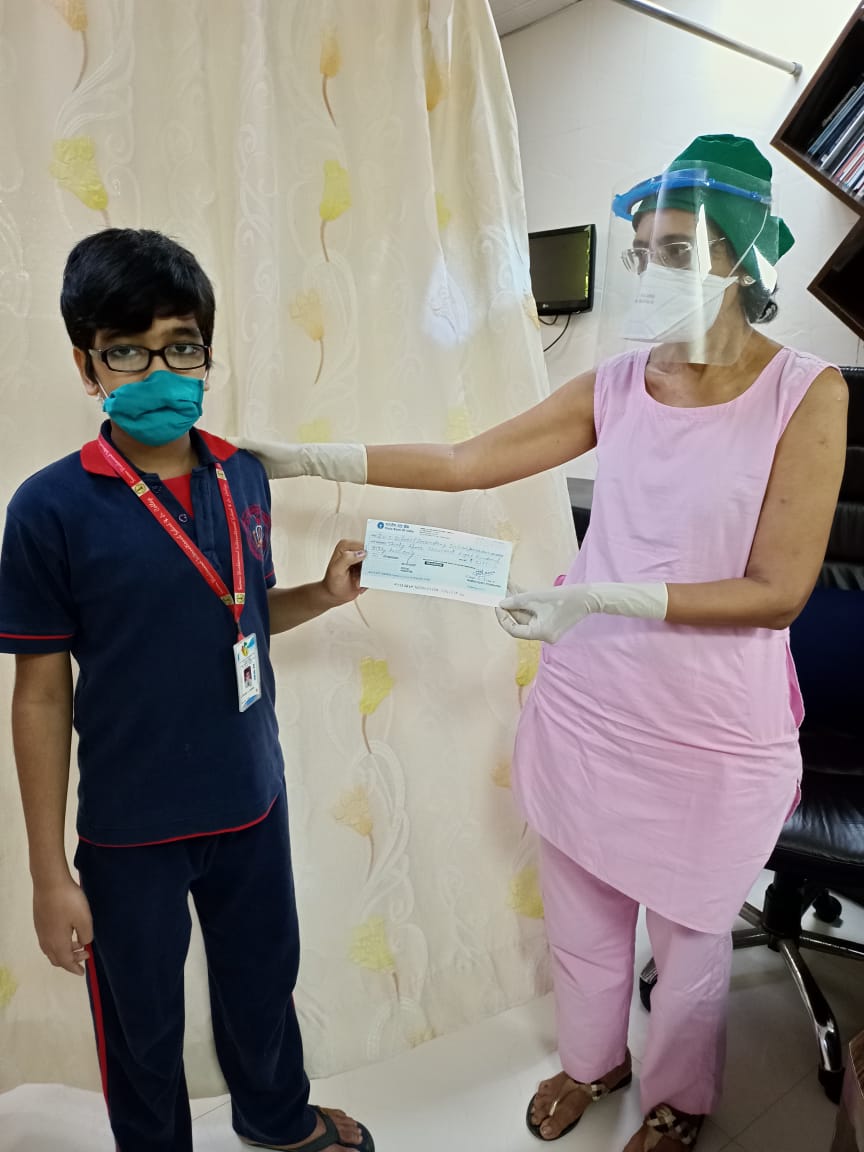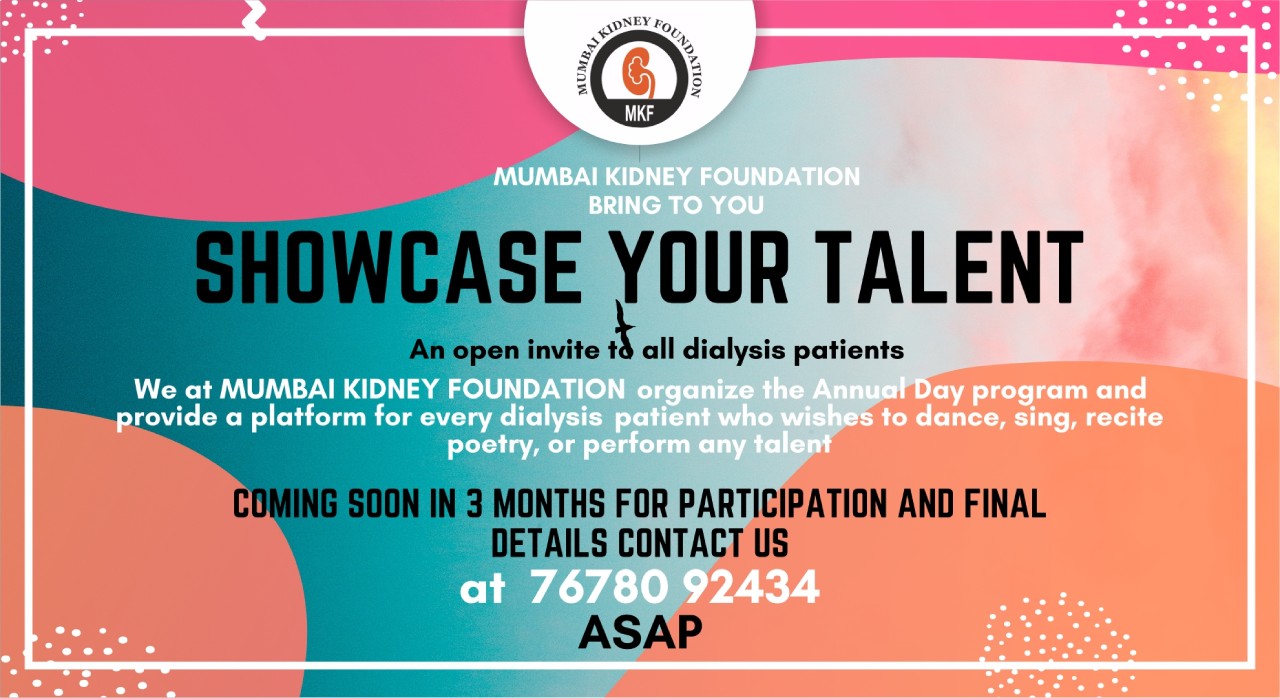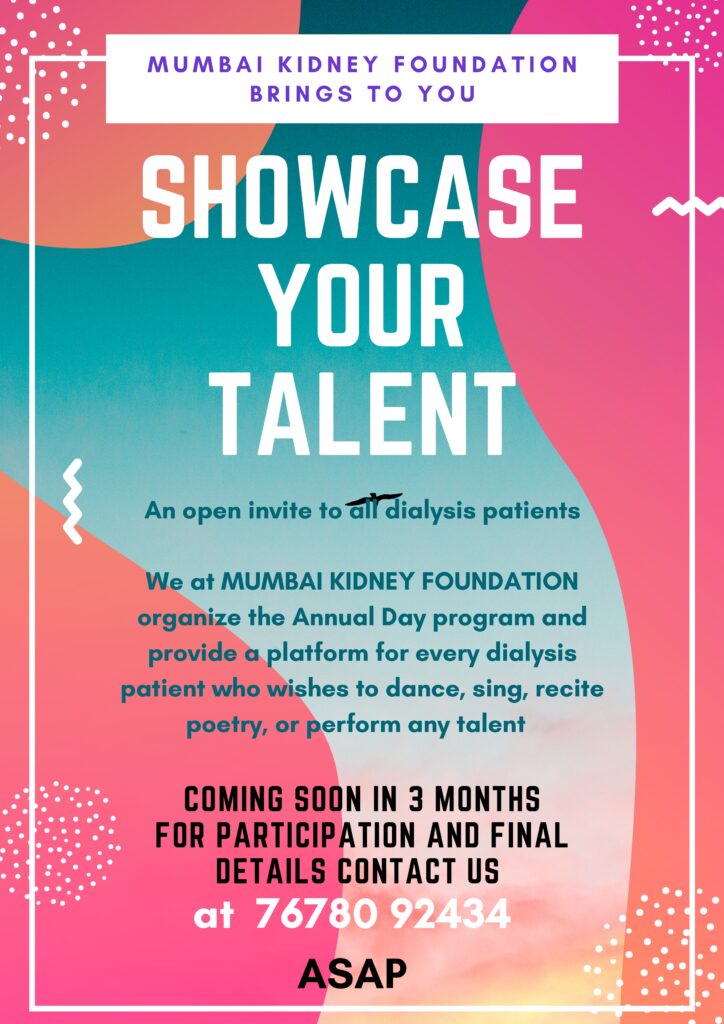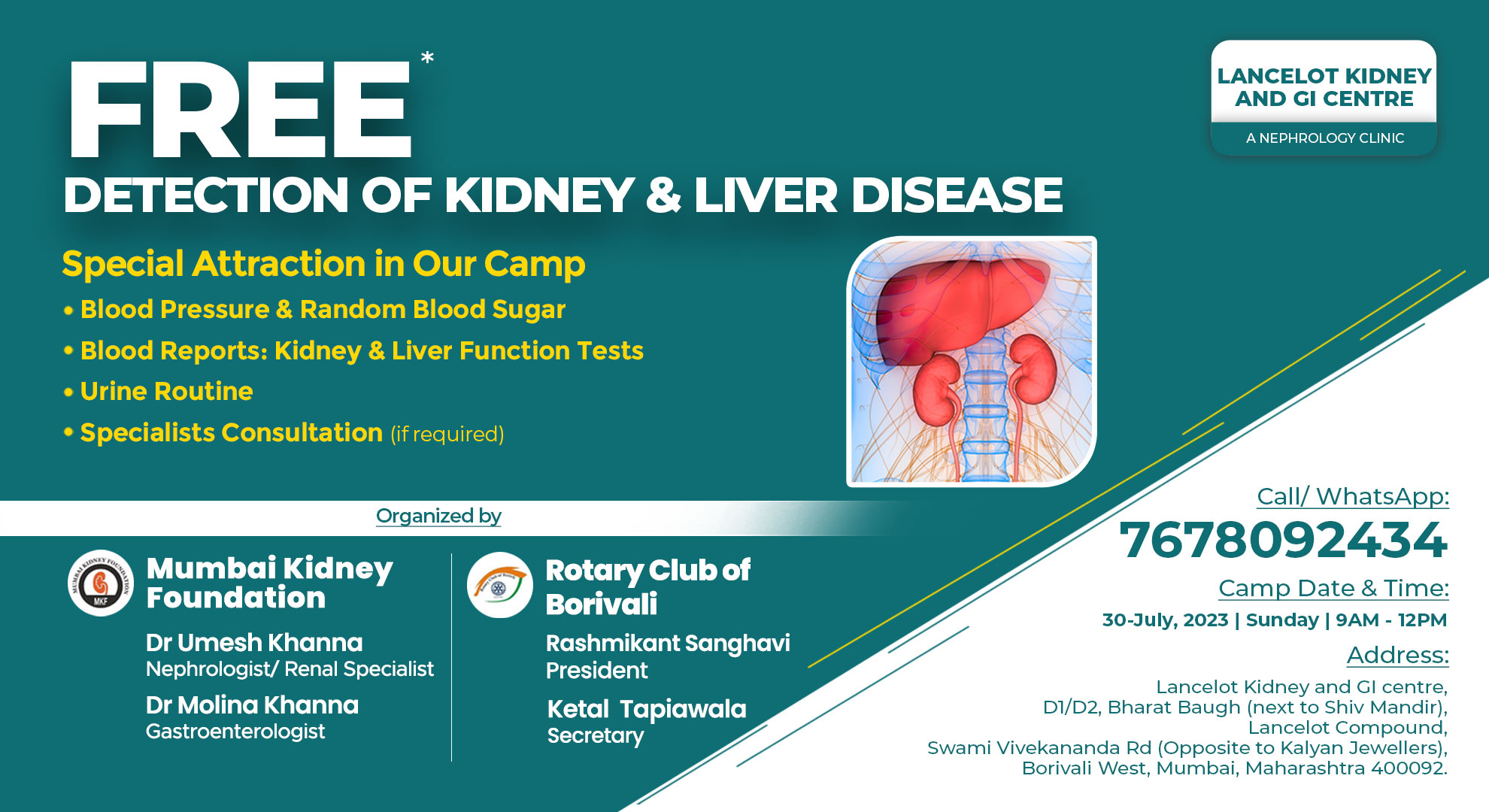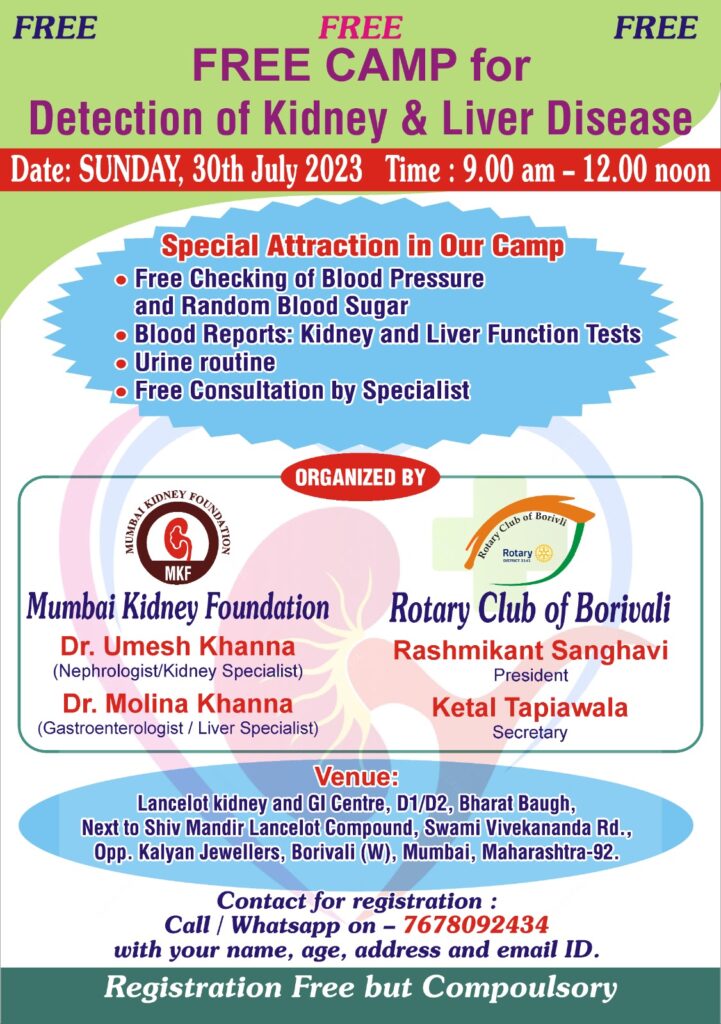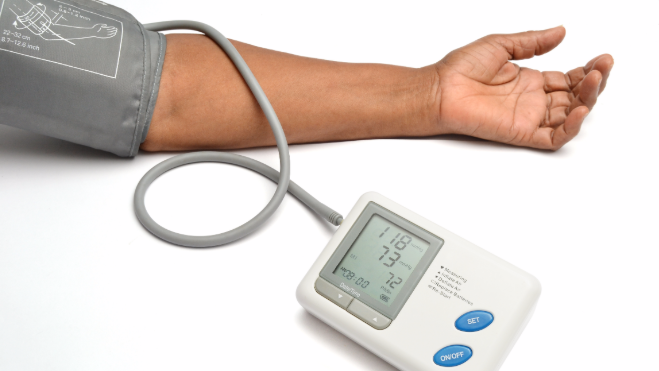Diet for Chronic Kidney Disease
Diet for Chronic Kidney Disease
Diagnosed with Chronic Kidney Disease (CKD), need not worry about your diet!
Let not the thought of a restrictive diet haunt you!!
Yes, it does need changes but slowly and gradually, you can adapt to it.
We can walk you through some tips that can help you select your food items wisely and then we shall look into some kidney friendly recipes too!
Few tips for diet in CKD:
- Salt restriction: It is of prime importance in CKD. Salt and fluid restriction are needed to avoid complications of CKD like raised blood pressure, swelling on feet/ face, breathlessness, etc. To get answers to some frequently asked questions about kidney diet, click here
Myth: Kidney patients should prefer low sodium salt.
Fact: Kidney patients should not prefer low sodium salt, they should rather prefer normal sodium and iodised salt but in less quantity. Also, they should not prefer a NO SALT diet, but a LOW SALT diet.
Practical tips: Avoid adding salt to chapatti, rice, salads, curd. Add salt only to vegetables/ dals and breakfast/ snacks. Avoid foods with extra salt like baking soda/ baking powder; namely breads, biscuits, khari, butter, toasts, etc.
- Fluid restriction: As kidneys are responsible for flushing out extra fluid from body, so when kidneys cannot perform this function; fluid can begin to accumulate in the body. This can give rise to symptoms like raised blood pressure, swelling on feet/face, breathlessness, etc. Hence, always talk to your Nephrologist about your fluid intake.
Myth: Drinking more water can help in flushing out toxins like creatinine from body.
Fact: When kidneys are not able to do their work efficiently, it leads to accumulation of fluids and hence, fluid intake should be restricted.
Practical tips: Use a bottle with measurement marks on it, to track your fluid intake. Remember to count all liquids (at room temperature) like tea/ milk/ dal/ kadi/ kadha/ buttermilk/ ice cream, etc as fluids.
- Potassium restriction: Potassium restriction is required in case your potassium level rises in blood. It is a dangerous element as it can lead to harmful consequences like cardiac arrest (stops the functioning of heart).
Myth: Potassium is not as dangerous as creatinine for kidney patients.
Facts: Potassium is much more dangerous than creatinine as it can lead to cardiac arrest (sudden stoppage of heart) while creatinine does not do so.
Practical tips: For lowering the potassium intake, avoid coconut water and coconut based items like chutneys, etc, fruit juices, soups, sherbats, alcoholic beverages and neera.
- Protein restriction: CKD diet requires restriction of proteins; however, they should not be completely eliminated from diet. Protein intake for normal individuals should be 1 gram per kg body weight. In CKD, this needs to be lowered down to 0.6-0.8 gram per kg body weight.
Myth: Proteins should be completely stopped from diet if you have CKD.
Fact: This does not serve the purpose, on the other hand; it can cause reverse outcome which is malnutrition. Protein intake should be reduced only if the intake is high and this should be done under the supervision of a Renal Dietician. Talk to your Dietician to know whether you need protein restriction. On a practical note, a Jain patient may already be eating low protein as compared to a Christian patient. So, a Renal Dietician can help you with this.
Practical tips: Avoid eating too many proteins in a single meal. Spread out proteins in every meal in limited quantity, for example – one can prefer milk or curd in breakfast, dal or pulse or egg white in lunch and dinner.
At times kidney patients have to struggle with their meals as they may not be tasty due to low salt intake, so if you are looking forward for some LOW SALT but highly tasty kidney friendly side dishes, click here
By-
Dr Rachana Jasani,
Renal Nutritionist,
PhD, RD




